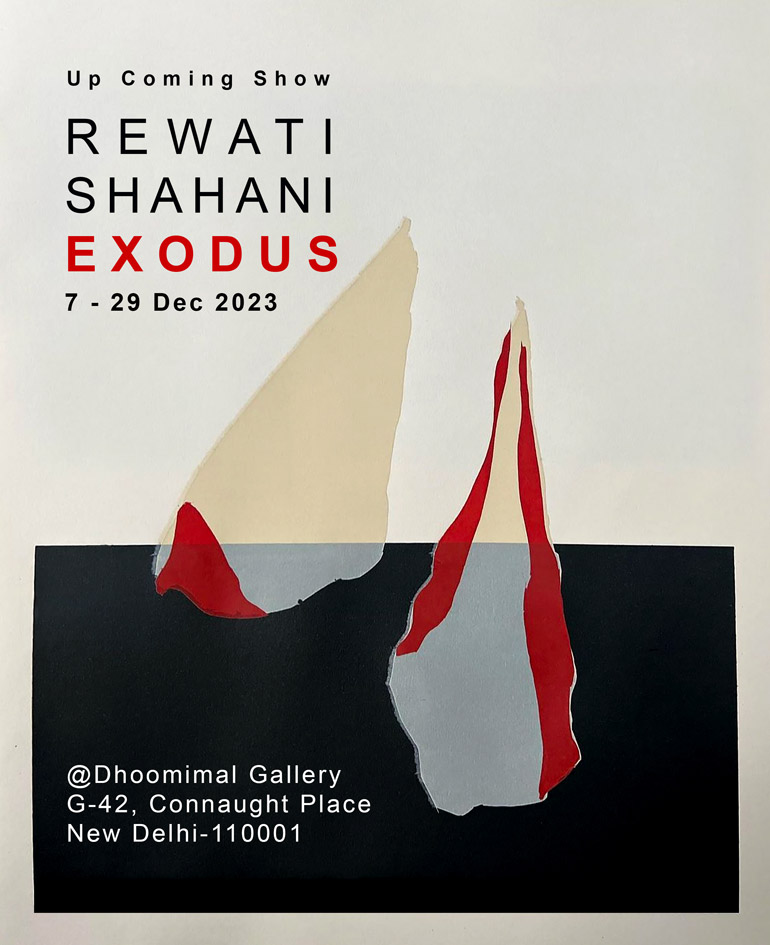‘Exodus’ continues Rewati Shahani’s exploration of human geography, both in the colonial and modern contexts. What does it mean for people to be displaced, to become refugees, a diaspora? Who decides?
A series of abstracted maps challenge the ethno-political delineations of the 20th century and examine their reverberations in the 21st, as felt across South Asia and more recently in Palestine. Also captured are the effects of more modern phenomena such as climate di...
‘Exodus’ continues Rewati Shahani’s exploration of human geography, both in the colonial and modern contexts. What does it mean for people to be displaced, to become refugees, a diaspora? Who decides?
A series of abstracted maps challenge the ethno-political delineations of the 20th century and examine their reverberations in the 21st, as felt across South Asia and more recently in Palestine. Also captured are the effects of more modern phenomena such as climate displacement.
Oil and ceramic works invoke the geological imagery seen throughout Shahani’s career. Standing stones and mountains interrupt horizons – their raw and natural grandeur contrasting stubbornly with the arbitrary contours of manmade nations – to offer a more positive vision for the future, based not on the need to flee but the freedom to explore.
Rewati Shahani was born and brought up in Mumbai. She studied Political Science in the city before moving to London to study Fine Art at the Slade and Central St Martins. She has lived in the capital ever since.
Her work examines the felt effects of human geography, both in the colonial and modern contexts. These themes are captured in a multi-disciplinary approach that spans oil paintings, hand-drawn maps, photographic prints and ceramics, all featuring the artist’s individualist mark making.
